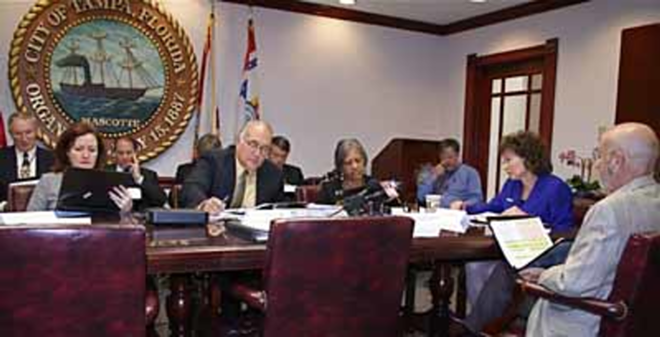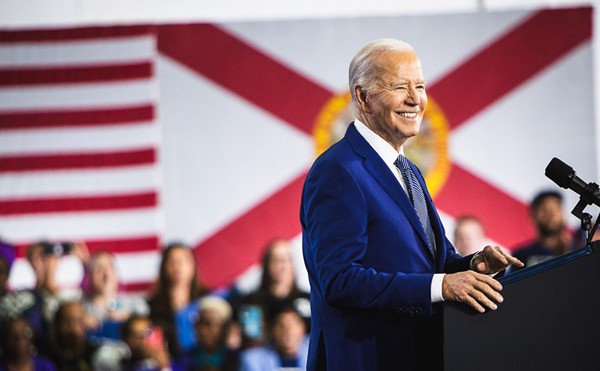
Spend a half hour with Tampa Mayor Pam Iorio and you're likely to hear the word "methodical" several times.
Her approach to getting light rail transit? "Methodical." Her efforts to institute green initiatives? "Methodical." What kind of person should succeed her in office? A "methodical" one who tries to get along with everybody.
Iorio has never been known as someone who leaks to the media, who calls a lot of press conferences, or who trumpets for or against issues. She keeps her head down, does her homework with a policy wonk's fervor.
Iorio was 26 when she was first elected to public office in 1985, part of a youth movement in Hillsborough County government at a time when local voters still skewed Democrat in their choices, in the aftermath of a scandal that saw three county commissioners led away in handcuffs in a bribery investigation. Iorio is the daughter of a University of South Florida professor, and her political approach and demeanor border on academic. (She received a bachelor's degree in political science from American University and, seven years ago, a master's degree from USF.)
After two terms on the County Commission and two more as Supervisor of Elections, Iorio became mayor of the region's largest city. But for someone whose politics are centrist and who has enjoyed strong support in every campaign she has undertaken, Iorio elicits a strange blend of adoration, grudging respect and underground criticism for her cautious approach.
Fans of her work say she dismantled the good ol' boy system at City Hall, deliberatively recruiting professional administrators with years of experience in either government elsewhere or, more often, the military. Neighborhood leaders applaud her as a real partner who has empowered them.
Criticism is muted, mostly because some activists in Tampa fear the power of the mayor's office and can't quite understand how they are sideways with Iorio despite her often-progressive stances. Some environmentalists say she moved too slowly to save the Hillsborough River. Urban advocates grumble that the city bureaucracy ground to a halt during her administration and hasn't moved to increase densities or change the city's 1970s-era development codes and regulations. She upset many Tampa Museum of Art backers when she killed plans for an expensive new building for the collections and, instead, undertook a "methodical" search of downtown buildings and sites before settling on a scaled-down plan along the waterfront, in Curtis Hixon Park. And the project for which she has shown the most passion — a $40 million Riverwalk stretching along almost all of downtown northward into a planned development in Tampa Heights — has drawn only middling private funding support. Critics split: some believe it represents Iorio having too expensive a vision, others point to it as an example of how her vision is not grand enough.
I ran into her at lunch a few weeks ago and she started the conversation by saying, "I heard you on the radio the other day saying bad things about me," during an hourlong interview on WMNF 88.5 FM. She never pinned down exactly what I said, but she insisted we get together, and when we did, Iorio gave me a folder full of green initiatives that the city has undertaken and that have received little public notice.
That meeting led to a promise to meet again for a more in-depth interview for our "Influencers" series. Here are excerpts from that conversation, which took place in her office on June 19.
CL: You're now finished five years in office. ... Is there anything that you thought you would have had finished by now that you have not been able to do?
That is an interesting question. The 40th Street project is taking a long time. I think any time you get into a situation where you have to acquire property, I have learned that that process can really string things out. You would think you could just come in and say, OK, 40th Street will be a priority, and we ought to just widen it. But that's going to take the full eight years.
Riverwalk, that may not be done by the time I leave office because of private funding that we still need.
I don't think I ever came into office thinking that you get things done right away. I guess because I've been in government so long that I do understand that it takes a while. You have to build consensus. You have to get funding. If it's something that you're building, then the market has to be right. You have to get the permitting. It all takes a while, so that's why you give someone eight years to be mayor. Even that's not long enough.
You talked about the pace of government and building that consensus, and you describe your style as methodical.















